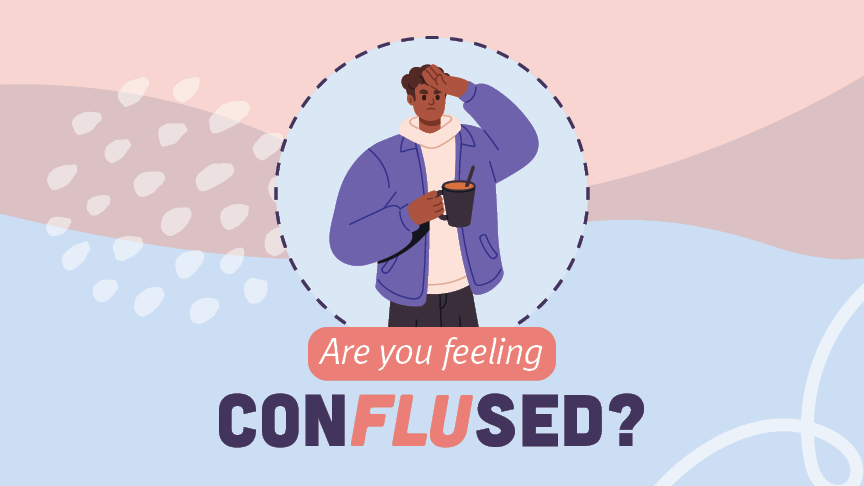
Winter is well and truly here, and the change in weather can have some of us feeling a little under the weather. Having the sniffles, a runny nose or sore throat is often our body’s way of telling us something isn’t right. But figuring out what’s causing you to feel sick can be confusing, especially with different viruses like Influenza and COVID-19 active in the community. If you or a loved one are feeling unwell and unsure what to do next, this blog might be useful for you.
Cases on the rise
This year’s flu season is different from previous years because of our response to COVID-19. In 2020 and 2021, public health restrictions and border closures meant that Influenza numbers were extremely low. Now with those restrictions easing and more domestic and international travel, Influenza cases are much higher. While we’re seeing more flu cases in our community it’s important to remember that COVID-19 hasn’t gone away.
Influenza vs COVID-19
Influenza and COVID-19 share a number of similarities. They are both respiratory viruses that are highly contagious. While everyone may experience these viruses differently, here are some of the common symptoms of each.
Influenza:
| COVID-19:
|
Where do I go if I feel unwell?
If you have any of the above symptoms, it’s recommended you get tested for COVID-19 because we still want to minimise the virus in the community. If you test positive to either a PCR or Rapid Antigen Test (RAT), you’ll need to isolate for seven days. In most cases, you will be able to isolate in your own home.
If you test negative to COVID-19 and symptoms persist, talk to your GP about getting tested for other respiratory viruses like Influenza. Regardless of what the cause is, it’s important people stay at home and help stop the spread.
How to best protect yourself
The community has proven to be really good at stopping the spread of respiratory viruses over the past couple of years. Those same measures that have been taken for COVID-19 will also work in stopping the spread of Influenza. This includes:
- staying at home if you’re sick
- washing your hands often using soap and water
- social distancing
- wearing a mask when you can’t socially distance
- using a tissue, or the inside of your arm, when you cough and sneeze.
One of the best ways to protect yourself is to get vaccinated. There are safe and effective vaccines for both Influenza and COVID-19 so the community is being encouraged to make sure they’re up to date with these.
For more information on Influenza visit: Influenza (The Flu) (health.qld.gov.au)